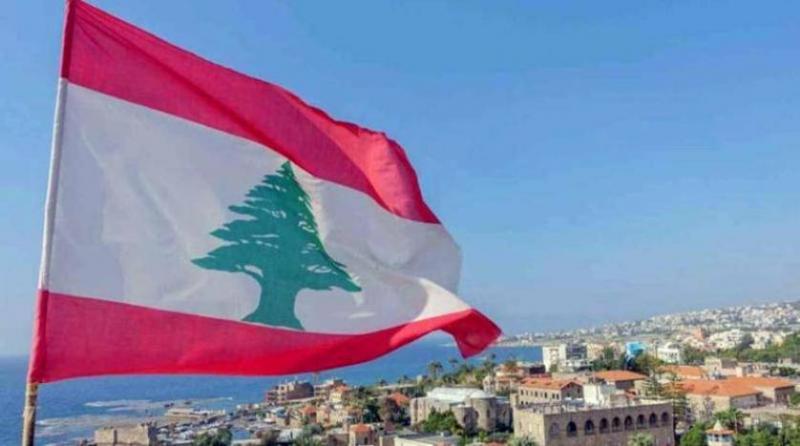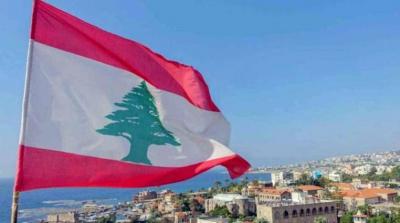The year 2022 was one of the most dangerous years Lebanon has faced since its borders were established in 1920 and since independence was declared in 1943. In fact, it can be considered the most perilous year in Lebanon's history, as it became clear that there was no room for any kind of reform and that the human bleed was continuing with the intent of fundamentally and completely changing the nature of Lebanese society. Just as the nature of the Shiite community in Lebanon underwent a transformation, it is now required that this change encompass the entire society across all its sects and regions in the face of simultaneous international and Arab indifference.
Generally, Arabs view Lebanon as a state that has militarily and politically fallen into the hands of "Hezbollah," meaning Iran. Arabs have grown accustomed to living without Lebanon, which no longer has anything to export except "Captagon" pills and drugs. They have dispensed with Lebanon, the Iranian base, while not having dispensed with Lebanese minds, which are welcomed in most Gulf Cooperation Council countries due to their expertise. There is no longer an Arab need for Lebanon, geographically speaking, as Lebanese minds are coming to Gulf countries, which have become one of the last refuges for these minds and those with expertise. The Iranian party has managed, through its weapons and various capabilities, to turn Lebanon into a base hostile to everything Arab in the region.
The most evident proof of this is that Beirut has become, after Sana'a, the second most important city for the Houthis (Ansar Allah) in Yemen. They have the freedom to move to and from Beirut. The "Ansar Allah" group also has a satellite channel broadcasting from the Lebanese capital with the protection of "Hezbollah" and with the knowledge of the Lebanese state, which is powerless to act against this reality. All that the state can do is watch Lebanon transform into merely a "venue" exploited by Iran to serve its specific goals of draining the country of all means of life and isolating it from the Arab world, particularly the Gulf, and from the civilized world in general.
Hasan Nasrallah, the Secretary-General of "Hezbollah," does not miss an opportunity to remind the people of the Gulf that Lebanon is a party in the Iranian campaign against them and that it is merely one of the cards held by the Islamic Republic of Iran. He has no problem if this harms Lebanese families working in this or that Arab state. What matters is that the agenda of the Islamic Republic and the requirements of its expansionist project, with its sectarian dimension, take precedence over any other consideration.
Internationally, Lebanon is no longer important except in one regard: protecting Israel. The year 2022 was pivotal considering that it was the year of closing the last open Arab front with Israel, namely the southern Lebanon front. Ultimately, the United States chose to conclude an agreement with Iran regarding the demarcation of maritime borders between Lebanon and Israel. This would not have been possible without "Hezbollah's" approval of the agreement and its provision of all the guarantees required by Israel.
Israel will exploit the Qadis field, whereas there is no guarantee of gas in the Lebanese Qana field from which Israel will receive a certain percentage of revenues under an agreement between it and the French company "Total Energies." The alarming aspect of the maritime border demarcation is that there is now American acknowledgment that "Hezbollah" represents the real authority in Lebanon. It is still unclear whether the American administration will deal with the new Lebanese reality, that is, Iranian occupation, in the same manner as it dealt in the past with the reality of the full Syrian occupation of Lebanese territory after October 13, 1990.
Former President Michel Aoun and his son-in-law Gebran Bassil, under whose era the agreement was signed, were merely a façade effectively used to pass the agreement. There is still uncertainty about whether America has agreed to Iranian guardianship over Lebanon. There are doubts about this, as it seems that "Hezbollah" has not, at least until now, been able to secure the political gains it expected from an agreement—being the first of its kind—that ensures Israeli security on one hand and guarantees gas from the Qadis field to Europe on the other. Its failure to obtain such returns is the reason behind the recent attack on the Irish unit operating in southern Lebanon, resulting in the death of one of its members.
There is a final chapter in the Lebanese tragedy that is known when it began but is uncertain when it will end. It began with the signing of the disastrous Cairo Agreement in 1969 and will not end except with a significant change on the regional level. Such a change is likely with the deterioration of the internal situation in Iran. A transformation will happen sooner or later in Iran, especially as it has become clear that the existing regime is rejected by the overwhelming majority of the Iranian people. The popular uprising in Iran, which began following the death of the Kurdish girl Jina Mahsa Amini three months ago, is no longer limited to a particular ethnicity, like the Kurds. It now encompasses all ethnicities, including Persians, Azerbaijanis, Arabs, and Baluchis.
The Iranian regime is no longer in a position to continue without exercising brutality in the most horrific forms. However, one of the pressing questions involves how long Iranians will need to rid themselves of the nightmare that has lasted over four decades. As for Lebanon, will anything remain of it when the rule of the clerics and the “Revolutionary Guard” in Iran ends? Will there be anything left of Lebanon that would allow for its restoration? Time does not work in Lebanon's favor. This was revealed by the year 2022, which primarily showed that "Hezbollah" is an epitome of the Shiite duo, while Sunnis are in a state of fragmentation at a time when Christians are not only suffering from a loss of their role on the Lebanese stage but also from an immigration hemorrhage that will soon reduce them to a mere minority resembling, at best, the condition of Sunnis in Iraq.




